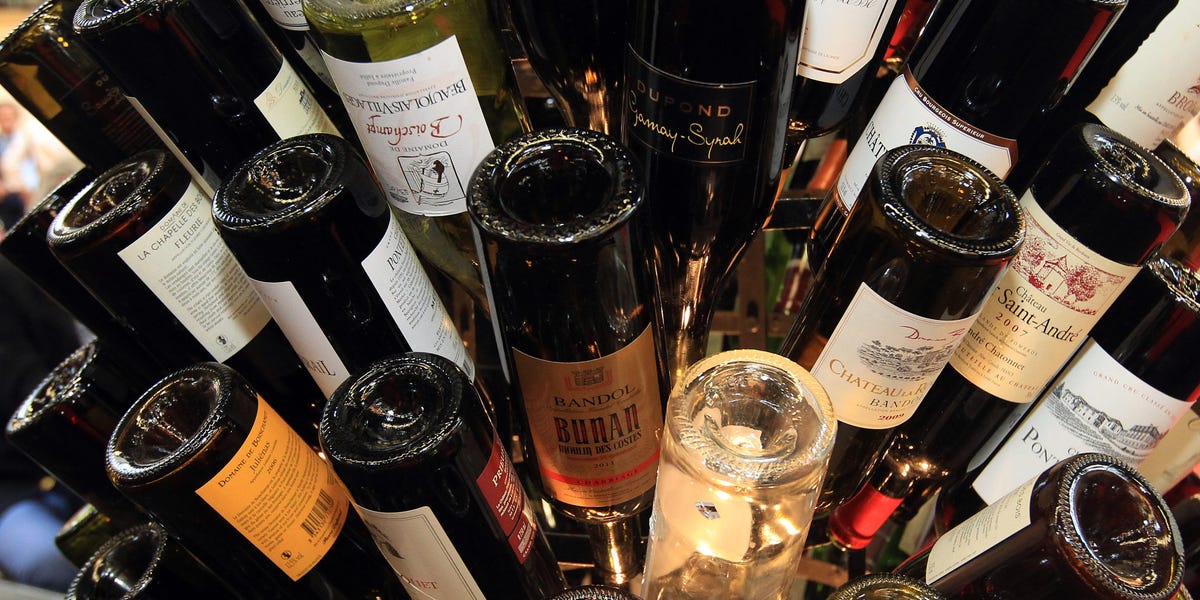- The French government hopes to shore up the country’s wine industry by purchasing excess wine.
- The excess wine will be turned into industrial alcohol used in hand sanitizer or cleaning products.
- France’s wine industry has seen a change in consumption habits, with less people drinking red wine.
The French government plans to spend €200 million (or about $216 million) to destroy excess wine in hopes of shoring up a struggling wine industry that is seeing changing consumption habits among younger drinkers.
The French Minister of Agriculture and Food Marc Fesneau announced on Friday that the government will be adding to the initial €160 million fund offered by the EU to purchase the surplus wine, according to Agence France-Presse news wire.
The wine will be destroyed to create industrial alcohol that can be sold to make items such as hand sanitizer, cleaning products, and perfume, according to the report.
The impacts of COVID and the high cost of living have contributed to the country’s wine industry woes. But across Europe, wine consumption has also decreased. A contributing factor could be high inflation that increasing food and drink prices, leaving consumers to buy fewer bottles while production remains strong, Bloomberg reported.
For 2023, the European Commission said that consumption has fallen 7% in Italy, 10% in Spain, 22% in Germany, 34% in Portugal, and 22% in France, AFP reported.
Between 2005 and 2021, France has seen wine consumption decrease from 33.5 million hectoliters to 25.2 million hectoliters — about a 25% decrease, according to Statista.
Meanwhile, younger drinkers are contributing to the boom in the alcohol-free drink markets, which includes non-alcoholic beer, wine, and spirits.
Susie Goldspink of IWSR Drinks Market Analysis told The Guardian in 2022 that France has one of the fastest-growing non-alcoholic drinks markets.
“Last year 14% of consumers said they were abstainers, whereas this year it was up to 20%,” she said. “Abstainers in France are more likely than in other markets to be from the youngest age group, Generation Z.”
Read the full article here





